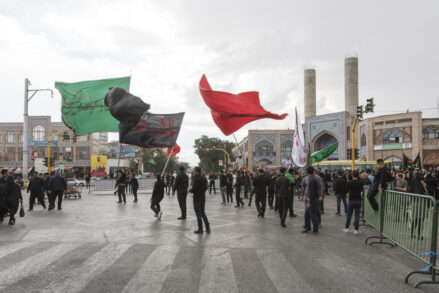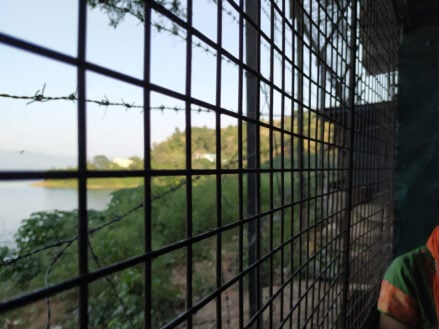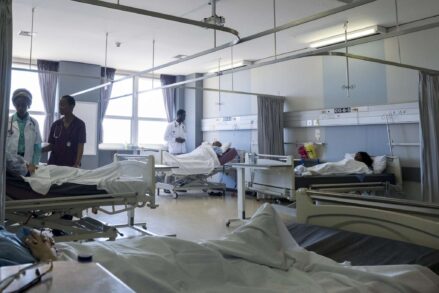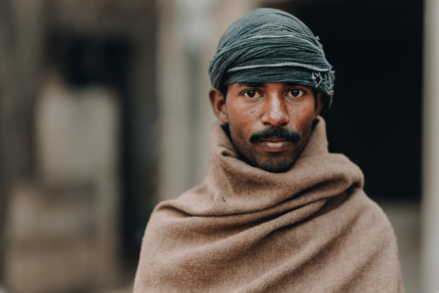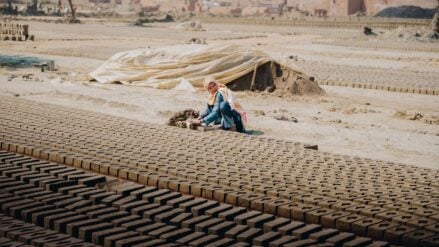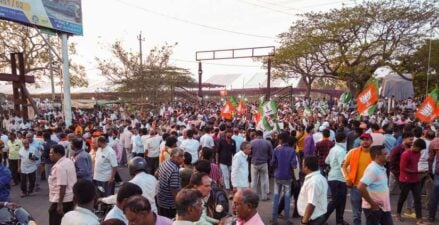But shortly after the service, an ordinary Sunday suddenly turned deadly and a church building where worshippers had just gathered became a crime scene.
Killed for following Jesus
At about 1 pm, while Pastor Pierre was still talking with several congregants in the churchyard, a dozen men on motorbikes stormed the area.
A local leader who wished to remain anonymous told World Watch Monitor: “The assailants asked the Christians to convert to Islam, but the pastor and the others refused.”
Reportedly, the attackers gathered Pastor Pierre and the five other congregants under a tree and then confiscated their Bibles and cell phones.
“Then they called them, one after the other, behind the church building where they shot them dead,” the leader said.
In addition to Pastor Pierre, the attackers killed his son, Wend-Kuni, and his brother-in-law (a church deacon), Zoéyandé Sawadogo, as well as believers Sayouba and Arouna Sawadogo, and a primary school teacher, Elie Boena. Another was seriously injured and taken to a nearby hospital.
The men then set the church building and two motorbikes on fire. Before they left, they stole sheep and a bag of rice from Pastor Pierre’s home.
He and his five congregants were buried the same day in a ceremony that drew people from both Christian and Muslim communities. The pastor leaves behind his wife and six other children.
Other locals reported that the next day, the same attackers (some of them known to village residents as “young men who’ve been radicalized”) came back into the village “searching for Christians.”
The sources say the armed groups can move with impunity because of the lack of law enforcement in the area in the West African country.
“I would rather die than leave”
Previously, Pastor Pierre told relatives about his concerns over the deterioration of security in the region, though there had been no incidents in his village.
The community leader said that when he and others advised the pastor to leave the area, he refused, saying he “would rather die for his faith than leave the community he has been serving for 40 years.”
In the last few months, more than 100 Christians have fled the area, moving farther south, more than 46 miles away. In February, armed men believed to be Islamist militants killed a church leader in the southeast region of Nohao, as he was returning from Togo.
Last Sunday’s violence in Burkina Faso that took the life of Pastor Pierre and his five congregants appears to have been the first attack, specifically on a church building, in which believers in Burkina Faso have been killed by Islamist extremists.
Burkina Faso: a once-peaceful country
Burkina Faso is long known for its peaceful co-existence among religious communities, unlike neighboring Mali. But over the past two years, attacks by Islamist militants, military operations, and waves of inter-communal violence have left hundreds dead and 135,000 displaced, triggering what New Humanitarian News has called an “unprecedented” humanitarian crisis that has caught many by surprise.
According to the Armed Conflict Location and Event Data Project, reported fatalities from attacks targeting civilians have risen by 300 percent in Mali, 500 percent in Niger, and a staggering 7,000 percent in Burkina Faso compared to the same period last year.
BREAKING: @ACLEDinfo records skyrocketing levels of political violence in the #Sahel.
Reported fatalities from attacks targeting civilians have risen by 300% in #Mali, 500% in #Niger, and 7,000% in #BurkinaFaso relative to the same period last year: https://t.co/Z47LijOi4e pic.twitter.com/5DzlOm2Hs0
— Armed Conflict Location & Event Data Project (@ACLEDINFO) March 28, 2019
The news agency reports that “home-grown militant groups, as well as extremists linked to al-Qaeda and the so-called Islamic State group, have been in the country’s north (bordering Mali) since 2016, but have expanded to new fronts in the east and southwest, threatening the stability of neighboring countries (among them Ghana, Benin, Togo and Ivory Coast).
Almost a year ago, a pastor from another Assemblies of God church in the same province, and some of his relatives were kidnapped. On June 3 in the village of Bilhoré, Pierre Boéna was kidnapped by armed men, along with his son, daughter-in-law, two grandsons, and a member of his church and her twin daughter. He was later released. It’s unclear what happened to the others.
The country has been the scene of several Islamist attacks, including one in January 2016 in which 29 people were killed, including a U.S. missionary and six Christians on a humanitarian trip.
The same day, an Australian doctor and his wife were kidnapped in Djibo, near the Mali border. Ken and Jocelyn Elliott, who are in their 80s, had worked in Burkina Faso since the 1970s. Jocelyn was released after a month, but Ken is still missing.
“Ask God to give us the strength to spread love”

The Federation of Evangelical Churches and Missions in Burkina Faso expressed its concern over the killings:
A day after the killings on April 30, the federation’s president, Henri Yé, said: “It’s not only the church of Sirgadji that has been attacked; all the values of tolerance, forgiveness, and love that have always led our country have been hurt. The freedom of worship consecrated by our fundamental law [the Constitution] has been flouted.”
Yé also called on all Burkina citizens, particularly Christians, not to fall into the attackers’ trap:
“In the face of blind hatred, let us ask God to give us the strength to spread love, which makes us the children of God. The unity of the Body of Christ and of the whole nation must be preserved at all costs.”
Top photo: A Baptist pastor in Ouagadougou, Burkina Faso, baptizes a truck driver who came to know Jesus Christ through the IMB’s West African Trucker Ministry. Copyright IMB.org.

